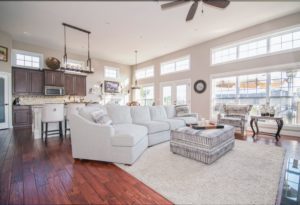
According to the Americans with Disabilities Act (ADA), rental property owners and their property managers are not allowed to discriminate against any tenant or potential tenant because of an intellectual, emotional, or physical disability.
Essentially, the law says that businesses must provide accommodations to people with disabilities and access that is equal or similar to what’s available to the general public. This includes landlords, and you need to understand how the law applies to you before you begin renting out an Orlando home.
You might be confused about what it means to make an accommodation. We’re taking a look at some of the most important requirements today, so you can be sure your Orlando rental property is compliance with all ADA and fair housing laws.
Accommodations Inside Orlando Rental Properties
According to the Department of Housing and Urban Development (HUD), an accommodation is:
“…a change, exception, or adjustment to a rule, policy, practice, or service that may be necessary for a person with disabilities to have an equal opportunity to use and enjoy a dwelling, including public and common use spaces, or to fulfill their program obligations. Please note that the ADA often refers to these types of accommodations as “modifications.”
Perhaps a tenant needs a bar or a seat in the shower, for example. Installing one would be a legally protected modification that the tenant could make, even if your lease agreement prohibits making any changes to the property. Perhaps wider doorways or lower entry thresholds are necessary to accommodate a tenant with a wheelchair. These are examples of accommodations and modifications you must allow in your rental property.
Multi-Family Parking and Common Areas
If you are renting out a single-family home, there’s likely a driveway or some sort of off-street parking that tenants can use. For multi-family properties with a parking lot or a garage, you will need to provide accessible parking spots. They should be clearly marked with the appropriate signs, and other tenants should understand that the parking spots are only for tenants who need them.
Wheelchair ramps should also be installed so tenants with disabilities can get in and out of the multi-family building with ease.
Make sure any common areas are accessible and ADA-compliant. Community rooms, clubhouses, and other communal spaces must be compliant as well.
Service and Companion Animals
A common accommodation that you’re likely to encounter when renting out Orlando homes is the need for a service animal or a companion animal, which can be an emotional support animal or a therapy dog.
These animals are protected by the ADA and the Fair Housing Act. They cannot be treated as pets, which means you cannot charge a pet fee or pet rent. You cannot deny a tenant with a service or companion animal even if you rent out homes with strict no-pets policies. Service and companion animals are not seen as pets by the law. They’re seen as accommodations.
 Mistakes are easy to make and if you violate ADA laws, even unintentionally, the penalties can be huge. Protect yourself and your property by understanding the laws. If you need some help, please contact us at Park Avenue Property Management. We’d be happy to serve as your Orlando property management resource.
Mistakes are easy to make and if you violate ADA laws, even unintentionally, the penalties can be huge. Protect yourself and your property by understanding the laws. If you need some help, please contact us at Park Avenue Property Management. We’d be happy to serve as your Orlando property management resource.